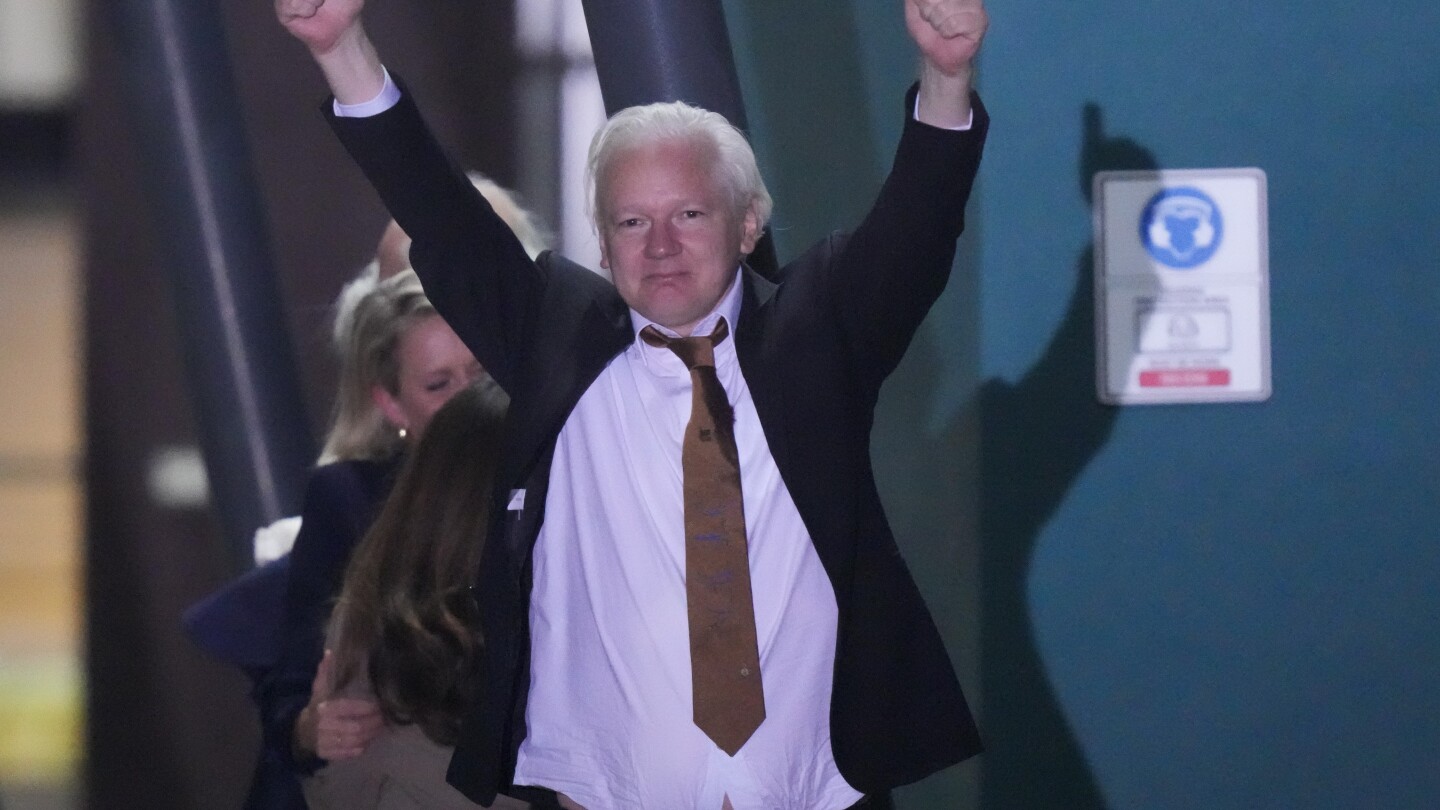WikiLeaks founder Julian Assange returned to his homeland Australia aboard a charter jet on Wednesday, hours after pleading guilty to obtaining and publishing U.S. military secrets in a deal with Justice Department prosecutors that concludes a drawn-out legal saga.
The criminal case of international intrigue, which had played out for years, came to a surprise end in a most unusual setting with Assange, 52, entering his plea in a U.S. district court in Saipan, the capital of the Northern Mariana Islands. The American commonwealth in the Pacific is relatively close to Assange’s native Australia and accommodated his desire to avoid entering the continental United States.
Assange was accused of receiving and publishing hundreds of thousands of war logs and diplomatic cables that included details of U.S. military wrongdoing in Iraq and Afghanistan. His activities drew an outpouring of support from press freedom advocates, who heralded his role in bringing to light military conduct that might otherwise have been concealed from view and warned of a chilling effect on journalists. Among the files published by WikiLeaks was a video of a 2007 Apache helicopter attack by American forces in Baghdad that killed 11 people, including two Reuters journalists.
Assange raised his right fist as he emerged for the plane and his supporters at the Canberra airport cheered from a distance. Dressed in the same suit and tie he wore during his earlier court appearance, he embraced his wife Stella Assange and father John Shipton who were waiting on the tarmac.



it was a deliberate understatement for comic effect.
Still, though, 12 years is only considered proportionate because the the government sets the law and the government was embarrassed.
Its not a complete defence of Assange, his behaviors, his sketchy connections to Russia - but it is me saying that whistle-blowers are disproportionately punished not because it’s in the public interest
I disagree that embarrassment was the motivation.
Leaking the details of classified foreign intelligence operations is considered espionage or treason. Some of those leaks resulted in the execution of informants. Those are not small crimes.
According to the Espionage Act of 1917, he could have been executed. Imprisonment is standard, but 12 years is far better than the maximum of life in prison.
https://en.wikipedia.org/wiki/Espionage
This is speculation by the US, they were never able to prove this.
Yes but you’re saying “it’s a big crime because the people who stand to benefit from it being a big crime say it’s a big crime.”
While I’m not saying all and any espionage/treason is good, I’m asking why one would think these memoranda are worth more than human life?
Were they? Would the world be better off with Assange dead?
For the operatives put in danger and/or killed, it was worth human life?
You seem to be ignoring that Assange either knowingly or unknowingly risked peoples’ lives, people who had often given those lives into great risk in service of their country.
When the leaks first happened, I was supportive of Wikileaks (a natural position for an anti-war person like me). Later, when it was revealed that there had been no or little due diligence to ensure the information had been vetted and scrubbed, I realized how extreme it can be on both ends of the political spectrum.
Stop trying to paint this with some large political brush.
Assange is not a hero. The US government is not innocent.
Ah yes the poor innocent Cia agents
Risk, yes, but we know now that no one was hurt. It’s very different when you know what the consequences are.
In service of their country? Did the US make them US citizens?
Because most US informants were working against their countries in some cases even after the US invaded.